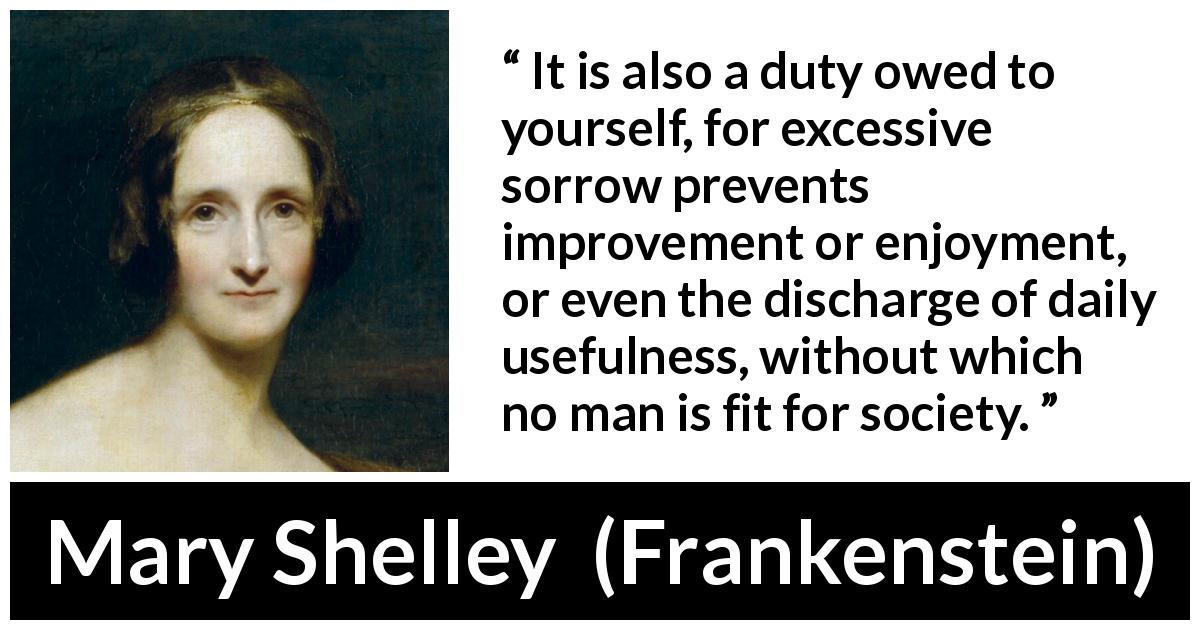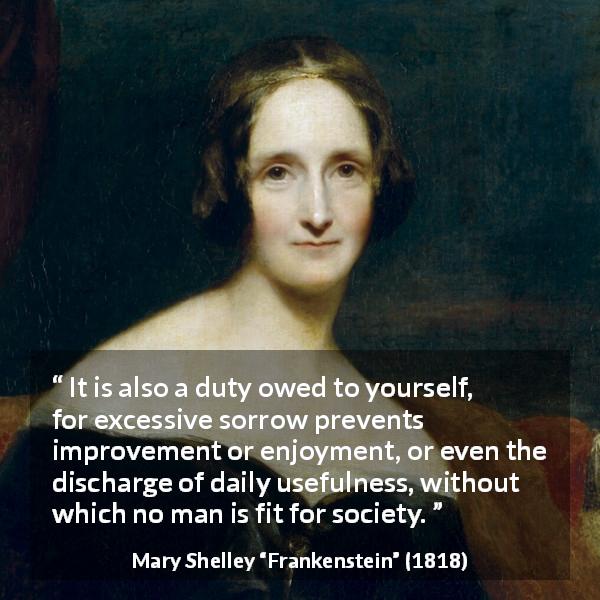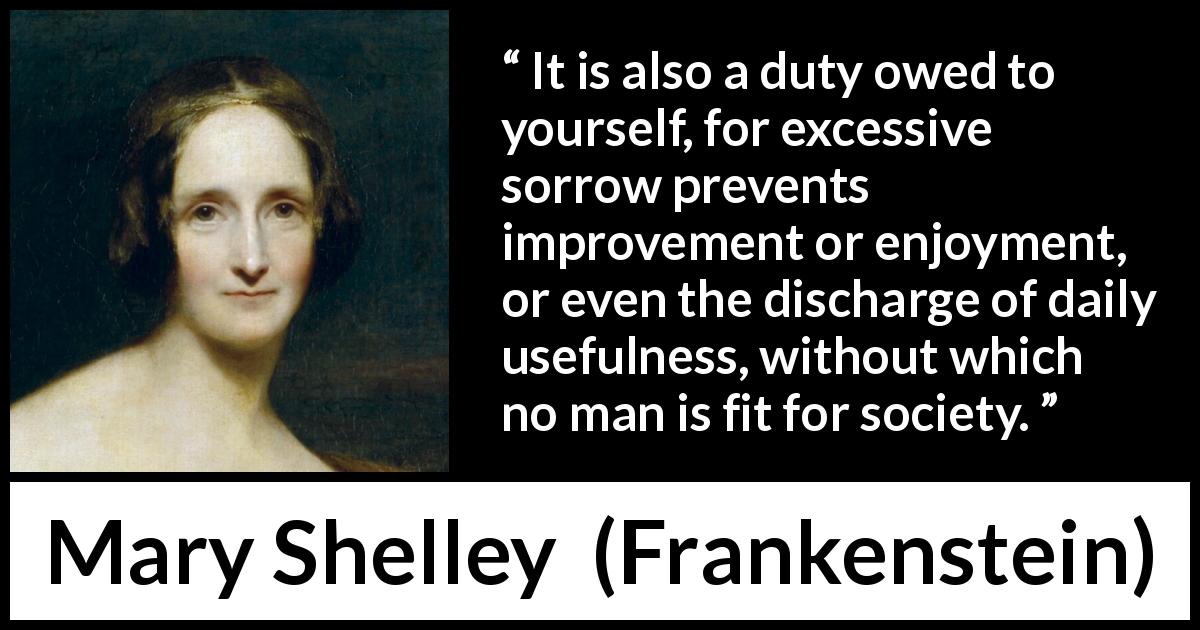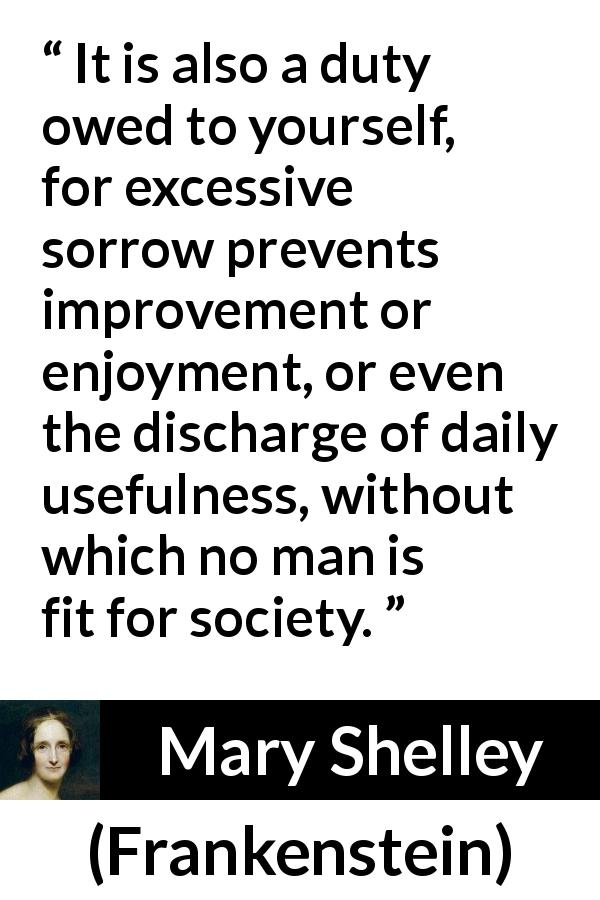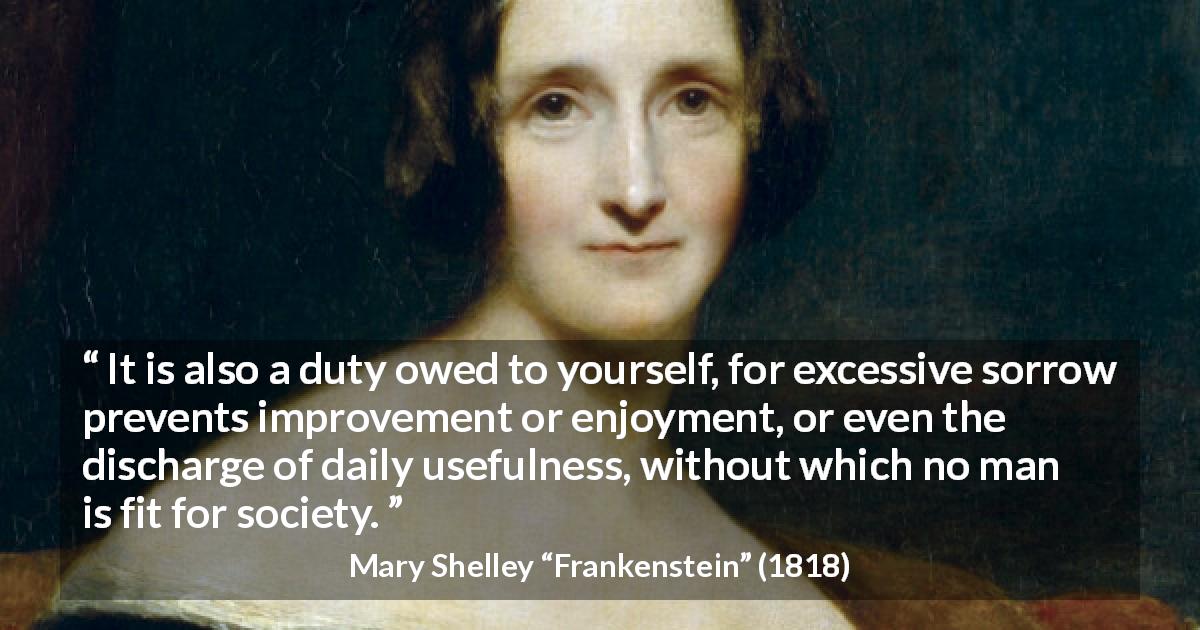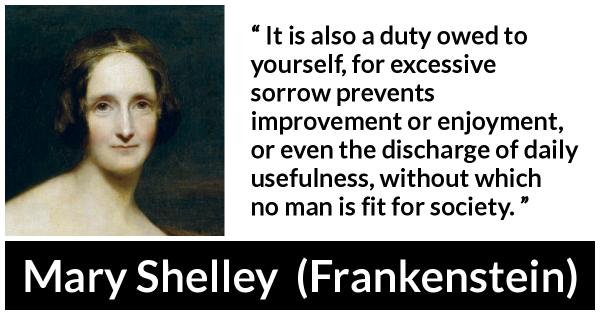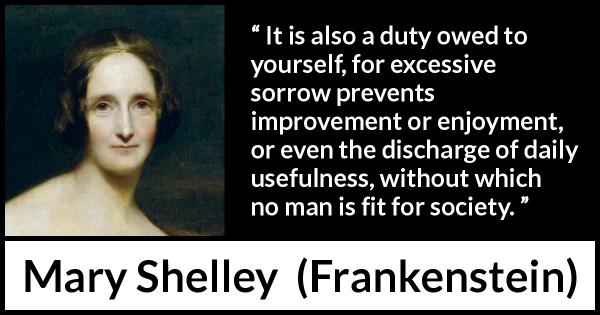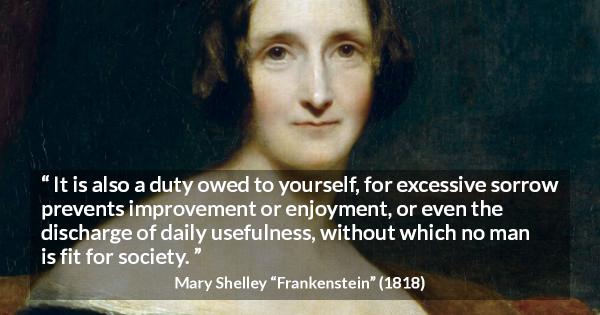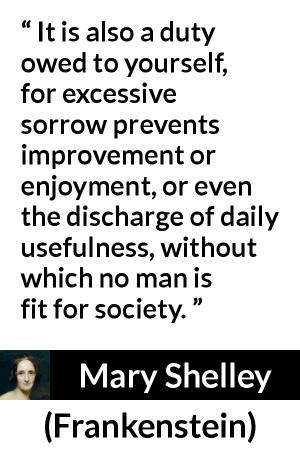“ It is also a duty owed to yourself, for excessive sorrow prevents improvement or enjoyment, or even the discharge of daily usefulness, without which no man is fit for society. ”
Mary Shelley, Frankenstein (1818). copy citation
| Author | Mary Shelley |
|---|---|
| Source | Frankenstein |
| Topic | sorrow improvement enjoyment |
| Date | 1818 |
| Language | English |
| Reference | |
| Note | |
| Weblink | http://www.gutenberg.org/files/84/84-h/84-h.htm |
Context
“No one could love a child more than I loved your brother»—tears came into his eyes as he spoke—«but is it not a duty to the survivors that we should refrain from augmenting their unhappiness by an appearance of immoderate grief? It is also a duty owed to yourself, for excessive sorrow prevents improvement or enjoyment, or even the discharge of daily usefulness, without which no man is fit for society.»
This advice, although good, was totally inapplicable to my case; I should have been the first to hide my grief and console my friends if remorse had not mingled its bitterness, and terror its alarm, with my other sensations.” source
This advice, although good, was totally inapplicable to my case; I should have been the first to hide my grief and console my friends if remorse had not mingled its bitterness, and terror its alarm, with my other sensations.” source
